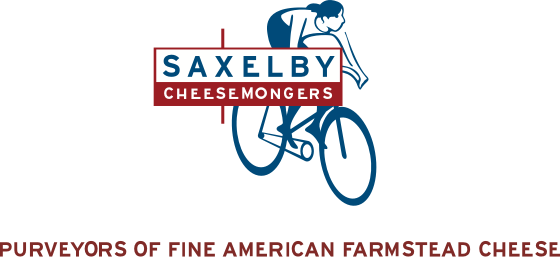One of the most common (and most aggravating) things we cheesemongers hear behind the cheese counter is, “How can you eat all that cheese and not get fat!?” The simple answer is that cheese, REAL cheese (meaning cheese that isn’t processed), is one of the best, most wholesome snacks. Real cheese is full of good fat, as well as a whole host of other nutrients that are very good for you and may actually inhibit weight gain.
To start off, cheese is a complete protein—it contains all nine essential amino acids our bodies need to function. Twenty to 25 percent of cheese’s calories come from protein. Three of the main amino acids found in cheese—tyrosine, taurine, and tryptophan—help in that department too. These amino acids help us metabolize fat and have appetite-suppressing properties, so they can also help us know when to say I’m full. Speaking of which, you only need to eat a small amount of cheese to feel satisfied. It may not sound like much, but 2 ounces of cheese is a perfect serving, keeping hunger at bay and your waistline in check. In fat, ounce for ounce, a firm cheese like Parmigiano-Reggiano contains more protein than beef! (Cue the PSA . . . “Cheese. It’s what’s for dinner.”)

The other 75 percent of calories in cheese come from fat, but thankfully in the United States the tide is finally turning toward the appreciation of “good” fat by the medical community. Conjugated linoleic acid, or CLA, one of the main fatty acids found in cheese, has been shown to boost metabolism and aid in burning fat. Your body also needs fat to absorb and metabolize all the vitamins and minerals that are naturally present in cheese.
In addition to all the good fat, protein, and calcium in cheese, new research shows that even the microbes in cheese (and therefore the microbes in our guts) can help keep the pounds off and keep the body healthy. A Danish study found that the gut bacteria of cheese eaters contained a higher concentration of the compound butyrate, an anti-inflammatory fatty acid that has been shown to reduce cholesterol absorption, improve metabolism, and prevent obesity.
Americans do eat quite a bit of cheese—recent data show that the consumption of cheese per capita in this country is hovering somewhere around 35 pounds per person, but unfortunately most of that cheese is not traditional, real, artisanal cheese. Much of it is processed cheese (read—American cheese, other “processed cheese,”* or commodity mozzarella on pizza), which is the real culprit in the “cheese makes you fat” myth.
* What is processed cheese anyway? The dictionary definition is a product that is made from cheese, other unfermented dairy products, and emulsifiers. Basically, it’s cheese that gets ground up and combined with potassium citrate and sugar (yes sugar!) to give it that uncanny meltability. When I was a senior in high school in suburban Chicago, I was required to take a class, ironically titled Life Skills, where, in addition to learning to balance a checkbook, we were forced to learn the difference between “processed cheese,” “processed cheese food,” and “processed cheese spread.” Perhaps this was a bit of foreshadowing about my future career path, but to say that I was enraged to be expected to memorize the minute scientific differences between the multitudes of “processed cheese” schlock crowding the shelves of the local supermarket is an understatement.
This post is an excerpt from 'The New Rules of Cheese' by Anne Saxelby. To learn more about the wonderful world of cheese, buy a signed copy of 'The New Rules of Cheese' at saxelbycheese.com

